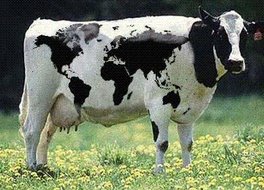I wrote this earlier, but the site froze up on me. So this will be different.
The Doha round collapsed today.
The point was to encourage free trade. All sides involved want free trade. What differs is their definitions of free.
The talks fell apart over the issue of agricultural subsidies. See, 'developed' countries pay their farmers to produce food. They don't want to stop doing that. More importantly, the farmers that elect certain politicians don't want those subsidies to stop.
The U.S., though, produces a food surplus. We (the taxpayers) are paying farmers to produce more food than we (the citizens) can eat. Is that food given at low or no cost to poor at home and abroad? No; it is thrown away, added to the middle-class waistline, and (most often) sold for a profit overseas. Not a profit for the government or the taxpayers, but a profit for the multinational corporations responsible for distribution of agricultural products in most of the world.
For these corporations, free trade is simply lifting all import barriers. "Subsidies are not import barriers," they cry, "we're not stopping the sale of your products!" For them, nothing could be nicer than to have that form of free trade.
They sell their nice, cheap, overproduced American corn and wheat all over the world at a tidy profit.
Thanks to subsidies, their sources in the U.S. are much cheaper than local sources in the poorer countries that can't afford to subsidize.
Local farmers in the world's worst economies are undercut and driven out of business.
Without a livelihood, they are reliant on non-existent industries and deeply indebted governments for the necessities of life.
The economy of the poorer nations of the world collapses.
The multinationals (based in the U.S. and Europe) get very, very rich.
The politicians get campaign contributions.
Everyone's happy . . .
Monday, July 24, 2006
Subscribe to:
Post Comments (Atom)

No comments:
Post a Comment